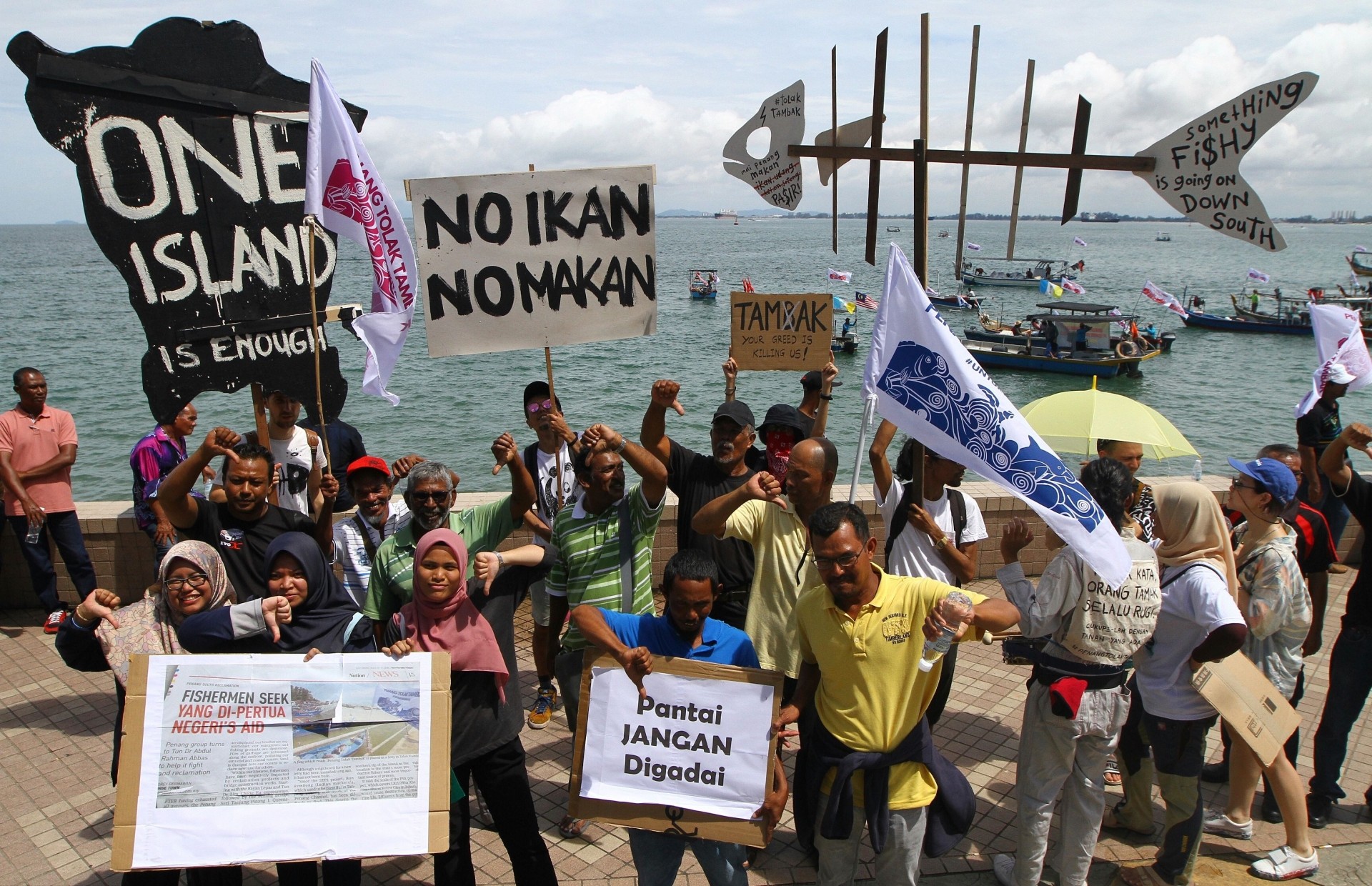Are we the most insane species?
“Man is the most insane species. He worships an invisible God and destroys a visible Nature. Unaware that this Nature he’s destroying is this God he’s worshipping.” ? Hubert Reeves, French Canadian astrophysicist and populariser of science.
Jan 23, 2020

By Anil Netto
“Man is the most insane species. He worships an invisible God and destroys a visible Nature. Unaware that this Nature he’s destroying is this God he’s worshipping.” ? Hubert Reeves, French Canadian astrophysicist and populariser of science.
The latest controversy to make the rounds was the brouhaha about the Ponggal harvest celebrations, a festival that celebrates – and gives thanks for — the bounty of nature.
And so, we continue to create controversies where none existed before.
In contrast, not many get excited about the destruction of the ecology. This week the Penang Tolak Tambak (Penang Rejects Reclamation) group went to Suhakam along with civil society activists to highlight their concerns.
They are worried that massive land reclamation in Penang and sand mining (for the reclamation) on the sea bed off Perak would damage and destroy the coastal ecology and hurt the livelihoods of fishermen. If this is not environmental injustice, I don’t know what is.
Their concerns, however, received little coverage in the media. This is similar to the scant media coverage of climate change – apart from when some climate catastrophe breaks out. The media may then cover the damage and the misery cause but there is little space devoted to the root cause of the crisis – our unsustainable growth trajectory based on an ideology of economic growth at all costs and the quest for more profits.
This should be of concern to all of us. But often, when the magic word development is uttered, many people back off. After all, who wants to be labelled as “anti-development”?
The problem is that there is such a thing as good development and bad development.
Good development should be holistic and ecologically sustainable. It should strengthen the bonds of community solidarity.
Bad development, on the other hand, en riches a few but damages society (eg exploitation of workers, whether local or migrant) or the environment (eg pollution) and divides the people between those who benefit and those who lose out.
Injustice is all around us, and now climate injustice.
Often when we think of prophets, we think of old men with flowing hair and long beards threatening fire and brimstone on evildoers or issuing ominous predictions.
But we are all called to be prophetic. What does this mean? One meaning of prophetic is “accurately predicting what will happen in the future”. Another meaning is “relating to or characteristic of a prophet or prophecy” (Oxford lexicon dictionary).
In the Christian context, being prophetic means accurately interpreting the signs of the times and highlighting its likely consequences.
It also means taking the side of the poor and oppressed in the path towards justice, peace, compassion and love.
It means both contemplating the mysteries of God and creation and speaking out when needed about injustice or anything that harms the integrity of creation.
In the context of climate change, it involves highlighting and denouncing actions that are sending the world hurtling towards the point of no return. It means pointing to more sustainable options that would take us along a new path.
More than that, it means envisioning a different, vibrant world where creation or nature is seen as a living, breathing, dynamic manifestation of God’s presence. A place where God cares enough to feed the birds in the sky, nurture the lilies and clothe the fields with grass (Matthew 6:26-30). The forests on lush hills and green valley teeming with creatures. Wild fish swimming in clear streams and rivers and unpolluted seas.
In the midst of all these, God placed human beings and saw that it was good, very good, indeed.
So how can we now do anything that would hurt the integrity of this precious gift of Creation while praying earnestly to God? How can we hurt either nature or the poor and the oppressed while claiming to be faithful or Christian?
We must now all take a collective stand and switch paths to a more sustainable world.
Footnote: In my last column, I described the encounter between Bishop Myriel and the peasant-convict Jean Valjean, two characters in Victor Hugo’s novel Les Miserables. I have since learned that, according to Peter Benichou (the editor of the abridged version of the novel), Hugo based this on the real experiences of the Bishop of Digne, Miollis, and a convict, Peter Maurin







Total Comments:0